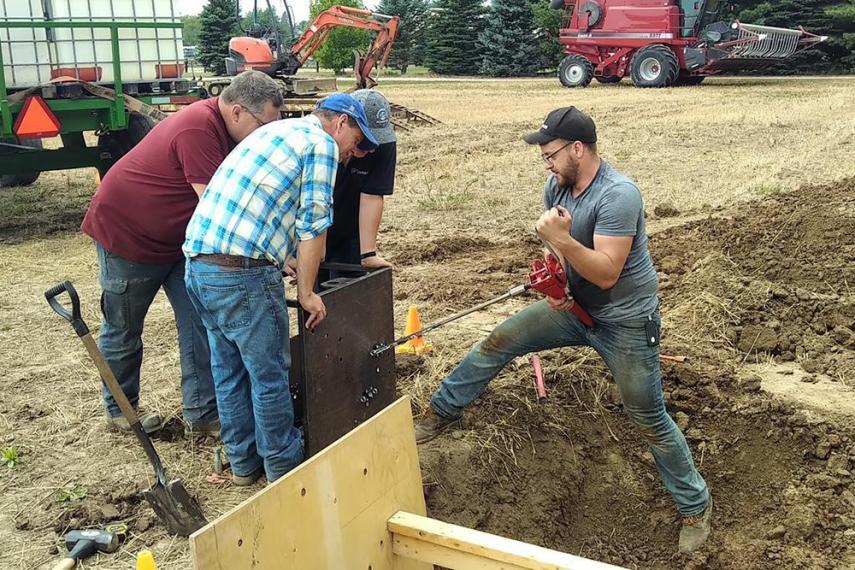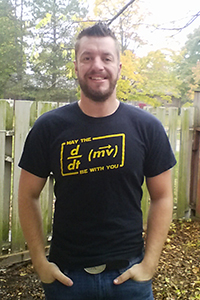Engineering Grad Supporting Soil Health

We chatted with engineering grad Alex Barrie about his work and interest in supporting sustainable farming.
Q&A With An Alum
Alex Barrie graduated from the University of Guelph with a B.Eng in 2015 and a M.A.Sc. in 2019, both in mechanical engineering. In 2016, he began working for the Ontario Ministry of Agriculture Food and Rural Affairs (OMAFRA) as an Engineer in Training in the development program while completing his thesis. We recently chatted with Alex about his role and interest in supporting sustainable farming.
Tell us about your work and your role
As an Engineer in Training with OMAFRA in 2016, I started working in nutrient management reviewing applications for land application of non-ag source materials as well as applications for nutrient management approvals for new or expanding farms. This experience provided me with an understanding of the regulatory side of agriculture. From there, I moved into different projects including program design and technical demonstrations for soil drainage.
In October 2019 I obtained my P.Eng and began the role of Soil Management Engineer. I’m now primarily focused on soil health and erosion prevention, but with my mechanical background and knowledge of agriculture equipment, I expanded the role to work on soil compaction mitigation strategies. A major part of engineering at OMAFRA is about knowledge transfer to the industry and providing materials so that farmers can make better decisions to be more efficient, but also to improve sustainability and prevent soil degradation. I helped host large-scale demonstration events to show the effects of vehicle weight on soil.

What brought you to where you are today?
I grew up on a Dairy and cash crop farm in Bowmanville Ontario where I had the luxury of helping my dad working on and building our own equipment. When it came time to decide what to do after high school, mechanical engineering at Guelph had been reestablished and that seemed like the most logical fit. I always wanted to be involved with the agriculture sector, so the proximity of many agriculture and related businesses made Guelph a good location for me. I also liked the idea of the co-op program. I completed my work terms at two different agricultural equipment manufacturers and was able to travel the United States to see a variety of farming practices.
Looking back, what stands out to you the most about your experience at the University of Guelph?
I find now that I cannot really comprehend the amount of material that is taught through a four-year program and, looking back, I’m quite proud of the amount of work I committed to my education. I enjoyed the community style of programming for core engineering courses and the emphasis on group work was good practice for real workplace experience. It is rare that I am working solely on a project in my current position, so knowing how to handle working in groups effectively is important.
Is there a quote, saying, or philosophy that you look to for inspiration/support?
I find that I will take up a hobby or a project, learn it sufficiently enough to get bored with it and move on to a new hobby. I find value in having a broad range of skills and experiences, which I can apply to technical problems.